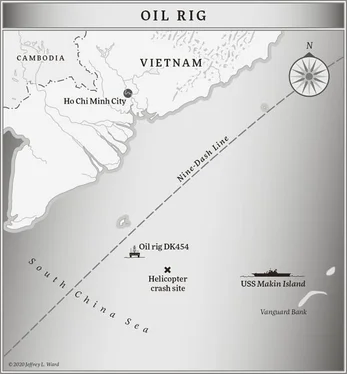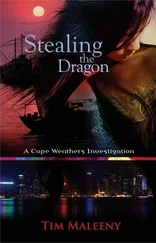And then there was gjakmarrja . Albanians had made the blood feud an art form. The philosophy of a head for a head was part of the social code or canon of twelve books known as the Kanun. Revenge was deeply ingrained in Albanian society, with gjakmarrja vendettas passing from generation to generation.
Still, even an asshole station chief, blood feuds, and Fifteen Family hit men who were often more disciplined and brutal than the Russian Mob—the good outweighed the bad. For Leigh Murphy, it was more of a calling than a job post.
Chief Rask made it out of his office on his gouty legs about the time she stood up.
“You know how I feel about lone meetings,” he said. “Grab Joey or Vlora to go with you.”
Two other case officers looked up from their respective desks in the bullpen, deadpan, clearly not wanting to get involved with more of Rask’s BS. Joey was a kiss-ass, but he was almost as lazy as Rask and didn’t feel the need to overwork himself tagging along on some meeting that was probably bullshit—like ninety percent of them were.
Murphy remained stone-faced. “Who said I was going on a meeting?”
“We read people,” Rask said. “It’s literally part of the job description.”
“Well, Chief, you misread. Just going to get a haircut.”
There was no set of circumstances where she wanted the station chief sticking his nose in this interview before she was done. She told Adam as much and he’d agreed. Besides, Rask would break into a wicked-gross mental fit if he got wind that she’d just been on the phone with a well-respected senior intelligence officer in the Agency—one who cared about the people he worked with and didn’t use their backs as rungs on his career ladder. Rask didn’t like other lions sniffing around his pride.
He sneered, licking his lips. Maybe he didn’t believe her, or maybe he felt deprived of the meat he’d expected when he saw her on the phone. Langley wanted frequent results. How was he supposed to kick intel up the line to make himself look good if his chief hunting lioness worried more about her personal grooming than making a kill?
He screwed up his face like he was about to sneeze. Murphy wasn’t sure he even knew he was doing it. The man wore his emotions like a neon sign. The polygraphers surely had a good old time with him.
“You sure you’re just getting a haircut?”
The rusty adage of not being able to kid a kidder applied doubly to a liar. But then, lying to a liar was CIA tradecraft 101.
She thought of popping off to him, something like “You can try and follow me if you want … oh, I forgot, you haven’t run a surveillance op in ten years …” but a smartass attitude would only give him some juice to write her up on come performance evaluation time. It was her job to work people. Might as well start with her boss.
She gave him her most benign smile. “Yep, just a haircut, Chief.” He relished it when subordinates called him that. She looked at her watch, then grabbed a tweed sport jacket from the back of her chair and put it on over the sweatshirt, adjusting the hood so it draped over her collar in back. Her mom back in Boston would have called the outfit a Fall River Tuxedo. “I came in early, and I’ve got scads of comp time.”
Rask waved a hand in the air over his shoulder, already shuffling back to his office. “Better be logged.”
Murphy took the Glock 43 and inside-the-pants holster from her lap drawer and shoved it down the waistband of her jeans, over the small of her back. Her dad, a Boston PD detective, had always said that God made that little hollow in a person’s back just the right size to carry a .45. He was a big guy, and could get away with carrying a big gun. Just under five-five, she stuck with the baby Glock nine-millimeter. Single-stack, the pistol carried only six in the mag and one in the pipe, but she was a case officer, not some ground branch operator. If she had to resort to her sidearm, things had gone terribly wrong.
She paused, turning to grab a spare magazine from her desk before Rask made it to his desk and turned around again. Wouldn’t hurt to go in prepared.
Adam Yao had asked her to interview Urkesh Beg, a Uyghur man who until recently had been held as an enemy combatant at a CIA black site—off the grid and away from the rules of the U.S. justice system. He was released when a military tribunal determined that although he was likely in Afghanistan, training with known terrorists, he was no longer an enemy combatant against the United States. Due to the rules of engagement, Beg’s association, and proximity to, known terrorists meant that U.S. forces could have put a warhead on his forehead if they’d hit the terrorist training camp with a couple of Hellfire missiles, but after holding him for four and a half years, decided they were not inclined to keep him in custody indefinitely.
Albania had offered Beg refugee status as a favor to the United States. As far as Yao knew, he’d kept his affiliation with the East Turkestan Islamic Movement, technically still on the terrorism watch list. There was a good chance that if he smelled anything remotely CIA or U.S. government about Murphy, he might not be all that pleased to see her.
Joey Shoop got the summoning whistle from Rask the moment the door swung shut behind Murphy. Shoop stood quickly—that’s what you did when the boss called—and tucked the errant tail of his peach oxford button-down into his pants. As much of a slob as the chief was, he liked his troops to look tidy. Vlora cocked her head to one side and looked down her nose at him. She spoke fluent Albanian and lorded it over everyone in the office. She touched her finger to her nose.
“Got a little hanger-on there, Joey.”
Shoop knew she was just messing with him, but he wiped his nose just in case on the way to Rask’s office.
The chief was staring at his computer screen, working on some memo. “Go after her,” he said.
“To her haircut?”
“She’s not getting a haircut,” Rask said. “Go.”
“Right,” Shoop said. “I’ll have her back.”
Now Rask looked up. “I want you to follow her. In your car. Let me know where she goes.”
“You got it,” Shoop said.
Rask raised both hands, palms up. “Unless you got a tracker on her car, you’d better get on after it.”
Shoop grabbed his jacket and left at a trot, hitting the door at the same time Rask called Vlora into his office—probably to keep her from ratting them out.
Murphy turned north out of embassy parking, heading for downtown. It seemed like every other car on the road in Tirana was gray or white, and many of those were Mercedes sedans. Murphy’s little Ford Fiesta melted into the background.
She crossed the Lana like she might be going to the city center, but then turned left, paralleling the river. Maybe she was just running a surveillance-detection route, crossing the river before she worked her way back to Blloku, just ahead on her right. It made sense. There were lots of high-end boutiques and shops there. Under Soviet rule, only Party elite were even allowed in “the Block.” Now it was the place to go to watch the upper crust of Tirana do their thing. The grim influence of the less-than-halcyon days of Soviet rule had long since been painted over with a riot of reds and yellows and blues. The architecture still resembled large boxes that more attractive buildings must have come in, but now, instead of dull gray cubes, multicolored blocks in the shadow of Mount Dajti lined streets named after U.S. presidents and packed with Mercedes-Benz sedans.
But Murphy didn’t turn until she reached the middle ring road, cutting north now, passing the embassies of Greece and Great Britain as she skirted downtown. She arced to her right, continuing east until she reached the Mother Teresa, at which point she turned right again on Rruga Bardhyl, generally going back toward the office.
Читать дальше











![Александр Ирвин - Tom Clancy’s The Division 2. Фальшивый рассвет [litres]](/books/417744/aleksandr-irvin-tom-clancy-s-the-division-2-falsh-thumb.webp)
